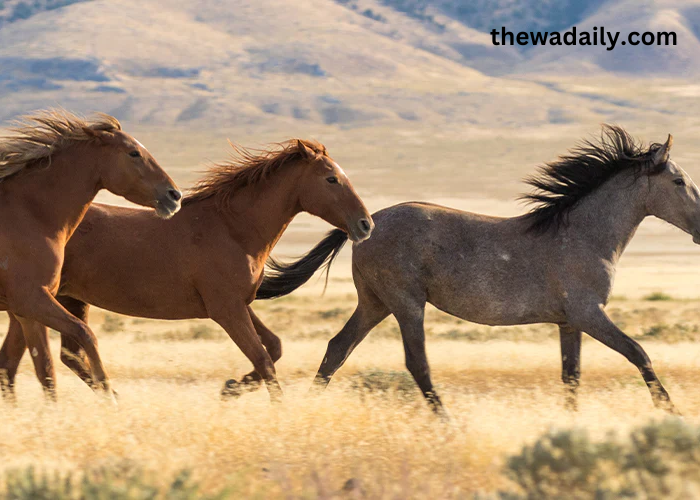Horses, with their majestic presence and remarkable versatility, have been intertwined with human civilization for thousands of years. Their journey from wild mustangs roaming the plains to elite race champions gracing prestigious tracks is a tale of evolution, domestication, and unparalleled partnership with humans. This article delves into the captivating history of horses, exploring their origins, the pivotal role they have played in human development, and their transformation into modern-day champions. Discover the finest quality turf at AbdellatifTurf. Our website offers a wide range of lush and durable turf options for your landscaping needs.
Origins and Early Domestication
The story of horses begins in the prehistoric era, with their ancestors dating back over 50 million years. The earliest known horse, Eohippus, was a small, multi-toed creature that roamed the forests of North America. Over millions of years, these early horses evolved into larger, single-toed animals better suited for running on open grasslands.
Domestication of horses is believed to have begun around 4000 BCE in the steppes of Central Asia. Evidence suggests that the Botai culture in modern-day Kazakhstan was among the first to tame and ride horses. These early domesticated horses provided a significant advantage in transportation, agriculture, and warfare, revolutionizing human societies.
The Spread of Horses Across Civilizations
As domesticated horses spread from Central Asia to other parts of the world, they became integral to various cultures. In ancient Mesopotamia, horses were used to pull chariots, enhancing military capabilities and influencing warfare strategies. The Egyptians revered horses and depicted them in their art, often linked to their gods and pharaohs.
In Europe, the Celtic and Roman civilizations further harnessed the power of horses for both war and agriculture. The Middle Ages saw the rise of the knight, whose prowess in battle was inextricably linked to their skill in horsemanship. The Spanish Conquistadors later introduced horses to the Americas, where they profoundly impacted Native American cultures and facilitated European colonization.
Wild Mustangs: Icons of the American West
Among the most iconic symbols of the American West are the wild mustangs. These horses are descendants of the Spanish horses brought to the New World in the 16th century. Over time, many escaped or were released into the wild, where they adapted to the harsh conditions of the plains and deserts.
Mustangs symbolize freedom and the untamed spirit of the West. They have become a subject of folklore, art, and literature, representing the rugged and independent nature of the American frontier. Despite their romanticized image, mustangs have faced challenges, including habitat loss and population control measures, sparking ongoing debates about their management and conservation.
The Evolution of Horse Racing
Horse racing has ancient origins, with records of chariot races dating back to the Olympic Games in Greece around 700 BCE. However, modern horse racing as we know it began to take shape in 17th-century England. The Thoroughbred breed, developed for speed and stamina, became the cornerstone of this sport.
In the 18th and 19th centuries, horse racing gained popularity in Europe and North America, leading to the establishment of famous races such as the Kentucky Derby, the Epsom Derby, and the Grand National. These events not only showcased the speed and agility of horses but also became significant social and cultural spectacles.
Modern-Day Champions
Today, horse racing is a multi-billion-dollar industry with a global following. Modern racehorses, especially Thoroughbreds, are meticulously bred for their speed, agility, and competitive spirit. Training regimes are sophisticated, involving advanced nutrition, veterinary care, and conditioning programs.
Legends like Secretariat, Man o’ War, and Seabiscuit have captured the public’s imagination, their stories of triumph and tenacity transcending the sport itself. These champions are celebrated not only for their victories but also for their impact on popular culture and their contribution to the legacy of horse racing.
Conclusion
From the wild mustangs that symbolize the untamed American spirit to the elite champions that grace the racetracks, horses have carved an indelible mark on human history. Their journey from untamed wilderness to the pinnacle of competitive sport reflects a dynamic relationship with humans, characterized by mutual respect, admiration, and partnership. As we continue to celebrate and cherish horses, their fascinating history serves as a testament to their enduring legacy and their profound impact on our world.
